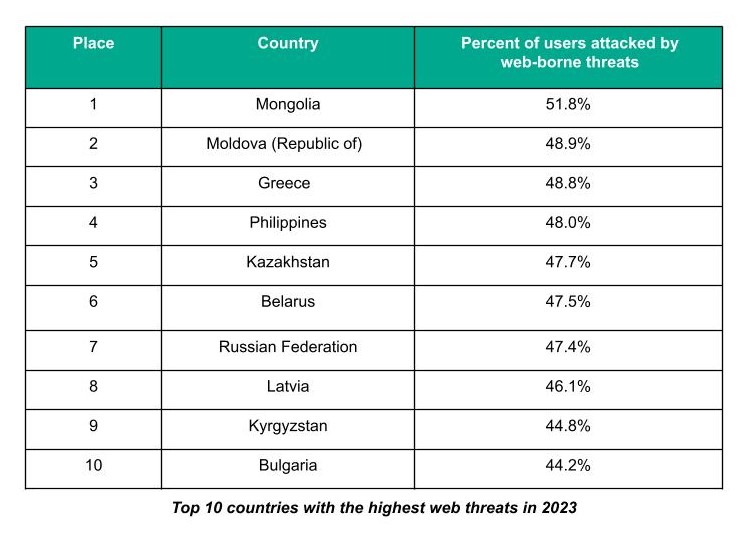COUNT
2021 is Golden Year of PH Sports — POC chief Tolentino

December 28, 2021 1:38 p.m.
THE Golden Year of Philippine sports.
Nothing more, nothing less, so said Philippine Olympic Committee (POC) President Rep. Abraham “Bambol” Tolentino of 2021, the year when a strongwoman from faraway Barangay Mampang in Zamboanga City lifted her way to victory and claim for the country its first Olympic gold medal in 22 appearances in the quadrennial Summer Games.
“This is a year of congratulations for all of us—for breaking several milestones in our sports,” Tolentino said. “The perfect description for this year is The Golden Year of Philippine Sports.”
Tolentino was one of the most ecstatic Filipino inside the Tokyo International Forum that fateful July 26 evening when Hidilyn Diaz, appearing in her fourth straight Olympics, won a contest of brute strength—and tactics—by lifting Games records of 127 kgs in the clean and jerk and 224 kgs in total lift that went with her 97 kgs in snatch en route to the women’s -55kgs gold medal of weightlifting.
“The year 2021 saw us attain multiple medals highlighted by that elusive gold in the Tokyo Olympics,” Tolentino said. “The Covid-19 pandemic may have slowed us down, but the ever resilient Filipinos have again proven that we rise against the odds.”
With three medals coming from boxing—silvers from men’s flyweight Carlo Paalam and women’s featherweight Nesthy Petecio and bronze from men’s middleweight Eumir Felix Marcial—the delayed Tokyo Olympics emerged as the best ever for the Philippines since it first attended the Games in 1924 in Paris.
Diaz led a 19-strong Team Philippines in Tokyo with all the athletes, although missing the podium, providee a peek of how medal potential they would become come the 2024 Olympics in Paris.
“Although the rest on Team Philippines didn’t win a medal in Tokyo, their determination and their youth make them strong candidates when we return to the Olympic stage in Paris,” Tolentino said. “Remember, Hidilyn was a young, unassuming and innocent 18-year-old when she competed in her first Olympics in 2008 in Beijing.”
Tokyo, Tolentino said, was the springboard to future successes in the Olympics.
“Yes, the Filipino athlete can win in the Olympics. Yes, we have the capability and we will build on that success,” he said.
The success in Tokyo hiked the Philippines’ overall Olympic haul to one gold, five silver and eight bronze medals, a blessing Tolentino said was well longed for and appreciated.
“This year is marked by a spirit of happiness for the blessings we have received,” he said. “We share these blessings to all athletes and coaches, to all the NSAs [national sports associations] that have contributed and supported their athletes to the best of their abilities and resources.”
Tolentino, also the president of the cycling association, said the successful campaign was a team effort—from the athletes themselves and their coaches and to their NSAs and sponsors.
“This year, golden as it was, we’re also in the spirit of gratitude to all the sponsors, the media and stakeholders who have been in support of our athletes,” he said.
The honor roll included the Philippine Sports Commission, MVP Sports Foundation, San Miguel Corp., AirAsia, Philippine Airlines, Milo, Max’s, Asics, St. Luke’s Medical Center, among others.
“My heartfelt gratitude extends to you and your family, a Blessed 2022 to us all in the sports community,” Tolentino said.
COUNT
PH slides to top 4 in Kaspersky’s new global ranking of countries most targeted by online threats

February 5, 2024 9:46 p.m.
In 2023, web threats targeting the Philippines were about two percent less (48%) than in 2022 (49.8%), according to the latest Kaspersky Security Network (KSN) report.
With this new data, the country moved two spots down to fourth place worldwide among countries most targeted by malicious files from the internet and phishing websites. It looks like a positive development but Kaspersky is strongly advising against dropping the armor.
“There are two things that could explain the drop in web threats, albeit slightly. First is that we see the country is slowly making headway in cybersecurity. We classify the Philippines to be in the intermediate group of countries that are identifying cyberattacks and making efforts to implement rules. The second one and this we have to seriously take note, is that cybercriminals are continuously taking other attack routes that might be off the radar. One trend that we consistently have been seeing lately is their preference for targeted attacks instead of the spray and pray method,” said Yeo Siang Tiong, General Manager for Southeast Asia at Kaspersky.
“Complacency, however, is still not an option. Cybercriminals continue to develop their tools and techniques. They actually surprise cybersecurity experts all the time. Our mindset should be how to be able to hunt threats before they could cause harm and damage. At this point, I recommend that we should be talking more about threats as we proactively learn to detect and respond to them. This is where threat intelligence comes in handy,” added Yeo.
Web or online threats are attacks through browsers which are also cybercriminals’ tried and tested way to spread malware. It can easily be done with or without the involvement of the victim.
A web attack with victim participation is done through social engineering. The victim is tricked into doing something that jeopardizes their personal security or the security of the organization they work for. The objective is to get the victim to respond by clicking an infected email attachment, a compromised website, or responding to a fake unsubscribe notice, among others. Last year’s data breaches involving a government agency and an e-wallet company, which were each reportedly traced to phishing, are examples of this type of web threat.
An attack requiring no victim involvement is through drive-by downloads. By simply visiting a compromised website, their device gets infected automatically (and silently) particularly if they failed to apply a security update to one of their apps. This method is used in most web attacks.
In the recent global ranking, the Philippines came behind Mongolia (51.8%), Moldova (48.9%) and Greece (48.8%). Since 2019, the country has consistently been in the top 10 ranking countries.
Among Southeast Asian countries, the Philippines is trailed by Malaysia with the overall percentage of users attacked by web-borne threats from January to December 2023.
To stay protected, Kaspersky recommends users the following:
- Do not download and install applications from untrusted sources
- Do not click on any links from unknown sources or suspicious online advertisements
- Create strong and unique passwords, including a mix of lower case and upper case letters, numbers, and punctuation, as well as activating two-factor authentication
- Always install updates
- Ignore messages asking to disable security systems for office or cybersecurity solution
- Use a robust cybersecurity solution appropriate to your system type and devices
For organizations, Kaspersky recommends the following:
- Always keep software updated on all the devices to prevent attackers from infiltrating network by exploiting vulnerabilities
- Use strong passwords to access corporate services. Use multi-factor authentication for access to remote services
- Choose a proven endpoint cybersecurity solution for business that is equipped with behaviors-based detection and anomaly control capabilities for effective protection against known and unknown threats
- Use dedicated set of effective endpoint protection, threat detection and response products to timely detect and remediate even new and evasive threats
- Use the latest threat intelligence information to empower your security experts
COUNT
There’s a Nanyang near you for all your Singaporean food cravings

August 4, 2023 6:30 p.m.
Missing Singapore’s famous Hainanese Chicken Rice, Laksa fishball, Cheesy Chicken Chop Noodles and Kopi?
Visit your nearest Nanyang Philippines branch.





COUNT
Globe powers up TOYCON 2023’s landmark 20th year

June 29, 2023 6:53 p.m.
As Toycon Philippines proudly commemorates its 20th year, the landmark celebration promises to be more electrifying than ever with the formidable support of leading digital lifestyle brand Globe.
For the first time, Globe is the title sponsor of the iconic pop-culture event, bringing a new level of excitement and engagement to the toy collector and creator community.
Globe has always been at the forefront of supporting diverse subcultures and passions, and this partnership is a testament to its commitment. As part of the collaboration, Globe will bring to life the rich world of its cinematic and theatrical partners, further enriching the TOYCON 2023 experience for attendees.
“Globe is thrilled to collaborate with Toycon Philippines, especially on such a milestone year,” said Mike Magpily, VP, Head of Segment Strategy and Subcultures at Globe.
“As the country’s most reliable network and top digital solutions platform with an ecosystem of various services, we’re uniquely positioned to foster the vibrancy of the toy collecting and creating community. This partnership underscores our commitment to nurturing a wide array of passions and interests while ensuring the best connectivity for all participants.”
Cholo Mallillin, Marketing Head at Toycon Philippines, said: “The collaboration with Globe will further elevate the Toycon experience. This partnership will bring more surprises and rewards to our community. We invite everyone to join us as we celebrate 20 years of Toycon in the most exciting way possible.”
TOYCON 2023 will be held at the SMX Convention Center in MOA from July 7 to 9, 2023. Attendees are in for a treat, as they have the chance to meet their beloved childhood characters, explore an expansive marketplace of unique toys and collectibles, and participate in exclusive Globe activities.
One of the highlights of the partnership is a series of exclusive perks for Globe customers. By using Globe Rewards points, customers will have the opportunity to win various ticket tiers ranging from Day Passes to VIP Passes. There will also be exclusive toy freebies for VIP pass holders, and unique Globe-only activities, such as paint-your-own Gudi.
At the event, Globe will also host an interactive booth featuring activities designed to reward and inspire. From earning freebies by donating Rewards points to a good cause, to free arcade plays and meet-ups with popular streamers, Globe customers are in for an exciting weekend of gaming and beyond.
To keep up-to-date with all the exciting promotions and surprises at TOYCON 2023, Globe customers are encouraged to use the GlobeOne app.
To learn more about Globe, visit https://www.globe.com.ph/.

















